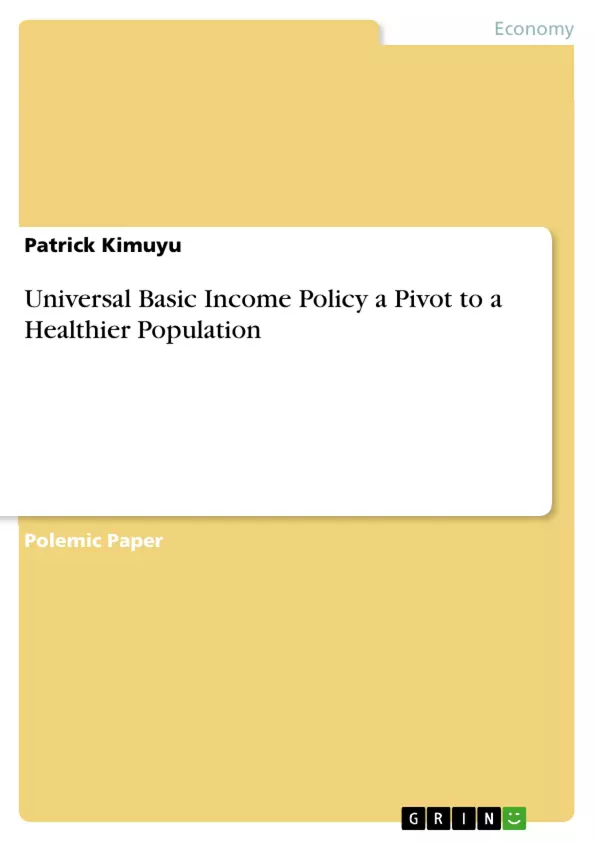Over the decades, welfare states have been making effort to address social risks, in order to enhance the wellbeing and economic prosperity of their citizens. However, the post-industrial welfare state is experiencing a significant social risk shift due to social change. It is apparent that the post-industrial social change has led to the emergence of what the current literature refer to as “New Social Risks.” This implies that welfare states are facing a more complex task of responding to the “New Social Risks” which are attributable to changes in family structures and transformation of the labor market. From a critical perspective, the “New Social Risks” facing Australia and other affluent countries include precarious employment, gender inequality, economic insecurity, and poverty. Issues such as single parenthood, possession of obsolete or low skills, care for the elderly and disabled people, and work and family life balance are considered as new social risks. Even though a precise definition of the New Social Risks concept is entirely missing in literature, it is believed that these social risks are related to socioeconomic transformations within post-industrial societies. To address these risks, a universal basic income has become highly debated. However, the proposed Universal Basic Income policy is not a policy reform that fits all. Countries have to weigh its benefits and limitations. In the case of Australia, the key question should be whether this policy is ideal to solve the emerging social risks or not. Again, it is worth to consider its cost; can Australia afford it? Therefore, this essay presents a focused argument on whether Australia should adopt a basic income policy or not.
Inhaltsverzeichnis (Table of Contents)
- Introduction
- The Concept of Universal Basic Income
- Origin of Universal Basic Income Proposals
- Milner's State Bonus Proposal
- Theobald's Guaranteed Income Proposal
- Countries with Universal Welfare Systems
- Debate over Universal Basic Income: Case in Australia
- Recommendation
- Conclusion
Zielsetzung und Themenschwerpunkte (Objectives and Key Themes)
This essay examines the potential benefits and limitations of implementing a universal basic income policy in Australia, focusing on its suitability for addressing emerging social risks like precarious employment, economic insecurity, and poverty. The essay aims to provide a balanced perspective on the potential of universal basic income as a social policy reform in the Australian context.
- The concept of universal basic income and its origins in social security models.
- The emergence of "New Social Risks" in post-industrial societies and their impact on welfare states.
- The debate over universal basic income in Australia and its historical context.
- The experiences of other countries with universal welfare systems.
- The potential benefits and drawbacks of universal basic income for Australia.
Zusammenfassung der Kapitel (Chapter Summaries)
- Introduction: Introduces the concept of universal basic income and its relevance to addressing emerging social risks in post-industrial societies, specifically focusing on the Australian context.
- The Concept of Universal Basic Income: Provides an overview of universal basic income and its historical connection to existing social security systems, highlighting its potential role in enhancing social protection and economic stability.
- Origin of Universal Basic Income Proposals: Traces the origins of universal basic income proposals back to earlier social security models, highlighting the contributions of individuals like Dennis Milner, Robert Theobald, and Milton Friedman.
- Countries with Universal Welfare Systems: Discusses the current debate and potential implementation of universal basic income in countries like Canada, Sweden, and New Zealand, emphasizing its potential to address social risks and foster economic sustainability.
Schlüsselwörter (Keywords)
The key terms and concepts explored in this essay include universal basic income, social risks, welfare states, post-industrial society, social security, precarious employment, economic insecurity, poverty, and policy reform. The essay analyzes the potential of universal basic income as a solution to emerging social challenges and its relevance to the Australian social landscape.
- Citar trabajo
- Patrick Kimuyu (Autor), 2018, Universal Basic Income Policy a Pivot to a Healthier Population, Múnich, GRIN Verlag, https://www.grin.com/document/419460



